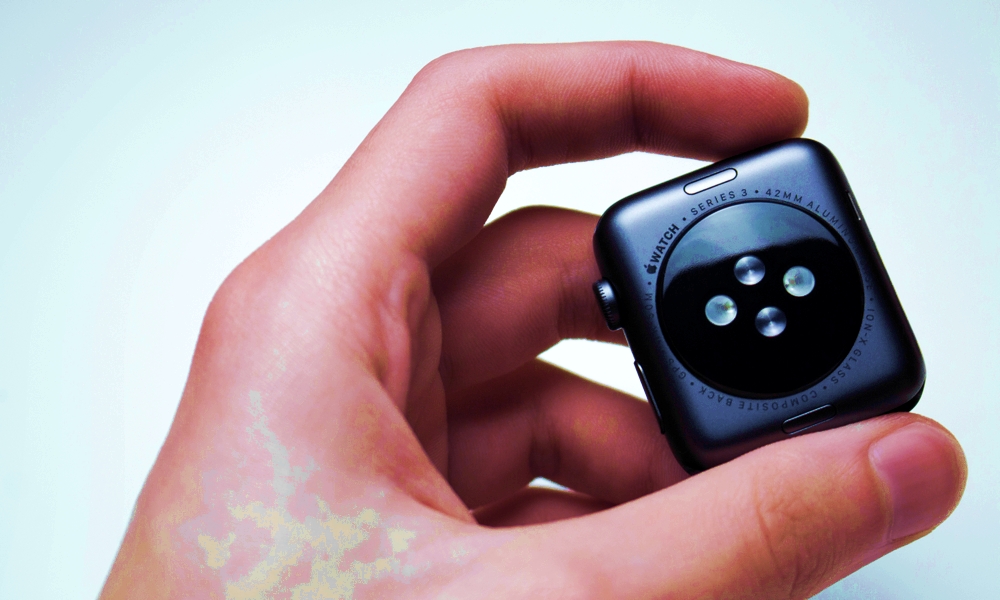This Company Says Apple Stole Its Health Features for the Apple Watch
 Credit: Fabian Albert
Credit: Fabian Albert
Toggle Dark Mode
Apple is once again being accused of “borrowing” some of the health features found in its Apple Watch from other patent holders, this time by a company that makes components for professional health-care monitoring equipment.
In a new lawsuit reported by Bloomberg, Masimo Corporation, which develops signal processing technology that’s used for health-care monitors, claims that Apple pretended to set up a working relationship with them in “a targeted effort” to steal trade secrets, subsequently hiring away some of Masimo’s key employees in order to work on Apple’s own health technology efforts.
Masimo, and its spinoff company Cercacor Laboratories, are accusing Apple of infringing upon a total of 10 patents that describe ways of performing non-invasive health monitoring techniques using light. In the filing, Masimo and Cercacor state that their technology was crucial in Apple’s efforts to overcome performance issues with the Apple Watch. The patents in question specifically cover ways to measure oxygen levels in blood as well as heart rate using light emitters and detectors.
‘Buying’ Health Experts
It’s also notable that Michael O’Reilly, a medical doctor and Professor of Anesthesiology at Stanford University who now heads up Apple’s health technology efforts, served as Executive Vice-President of Medical Affairs and the Chief Medical Officer for Masimo for five years before being hired to join Apple’s secretive health team back in 2013 as Vice-President of Medical Technology and Health Special Projects. O’Reilly’s decision to join Apple seven years ago is also being cited in the lawsuit as an example of how the Cupertino company not only stole its trade secrets but poached important members of its team in order to gain access to its patented technology.
In the court filing, Masimo says that Apple contacted them back in 2013, requesting that they meet for a potential collaboration in order “to understand more about Masimo’s technology to potentially integrate that technology into Apple’s products.” Following that meeting, however, which Masimo felt was a productive start, Apple instead simply hired away O’Reilly, who was “privy to extremely sensitive information.”
The following year, Apple also hired Marcelo Lamego, Cercacor’s chief technology officer, who the suit claims not only also had “unfettered access” to confidential technical information, but also began pursuing patent applications for things he learned at Masimo and Cercacor shortly after joining Apple.
‘Deep Wells of Trade Secrets’
Both companies insist that Apple knew it was getting confidential information from the two men, and in fact are alleging that Apple hired both of them for that express purpose, describing it as “a targeted effort to obtain information from Masimo and Cercacor.” Notably, however, neither O’Reilly nor Lamego are named as defendants in the lawsuit.
This also appears to have been brewing for a while, as both companies claim that they warned Apple previously about respecting their intellectual property rights, and in a 2014 interview with Reuters — back when the “iWatch” was just a rumour — Masimo CEO Joe Kiani said that some of the talent that Apple had been recruiting had “access to deep wells of trade secrets and information,” and that the company had been offering “sizeable salaries” to lure senior executives and researchers away from other health tech companies, effectively “just buying people.”
Masimo and Cercacor are seeking a court order that would block Apple using their patented inventions in the Apple Watch Series 4 and Series 5 along with the return of all confidential information in Apple’s possession. They are also seeking unspecified damages, and want their engineers to be added to seven patents and applications that were issued to Lamego after he began working at Apple, thereby making Masimo and Cercacor joint owners of those patents.
This marks the second time in recent weeks that Apple has been accused of stealing trade secrets pertaining specifically to Apple Watch health monitoring features. In late December, Dr Joseph Wiesel, a New York University Cardiologist, filed a patent infringement lawsuit claiming that the atrial fibrillation detection feature found in the Apple Watch actually uses his patented heartbeat-monitoring invention from 2006, and that Apple took the idea from him after he shared it with them in late 2017.






